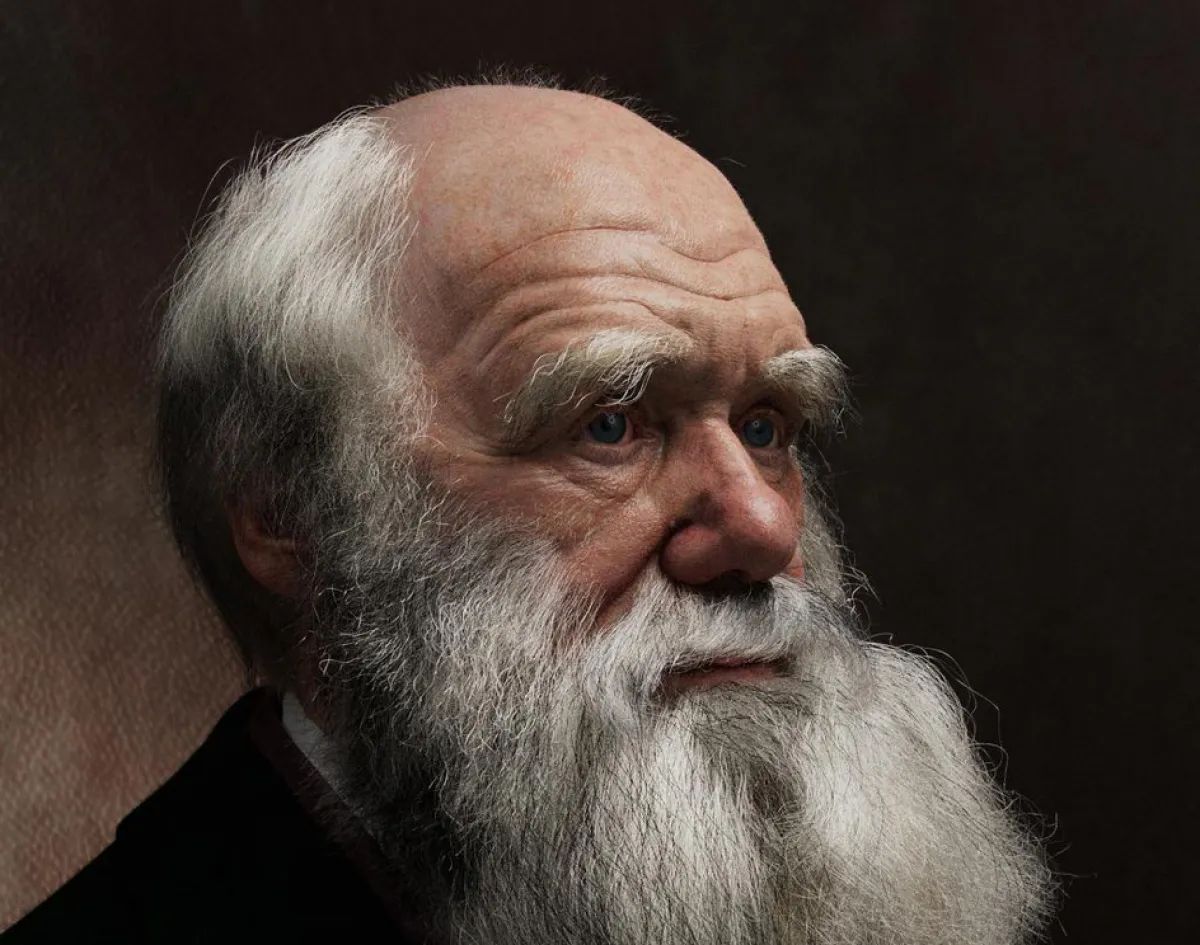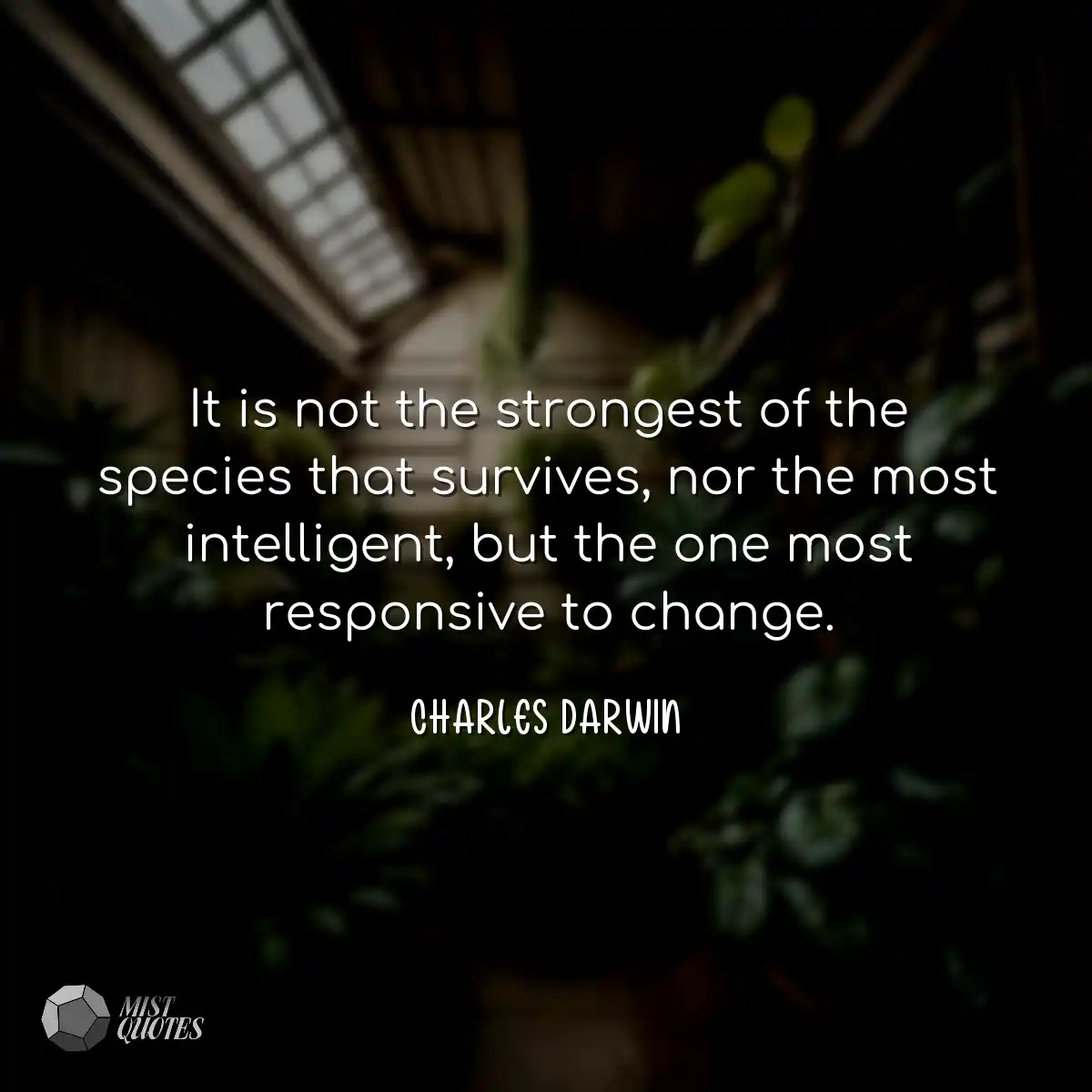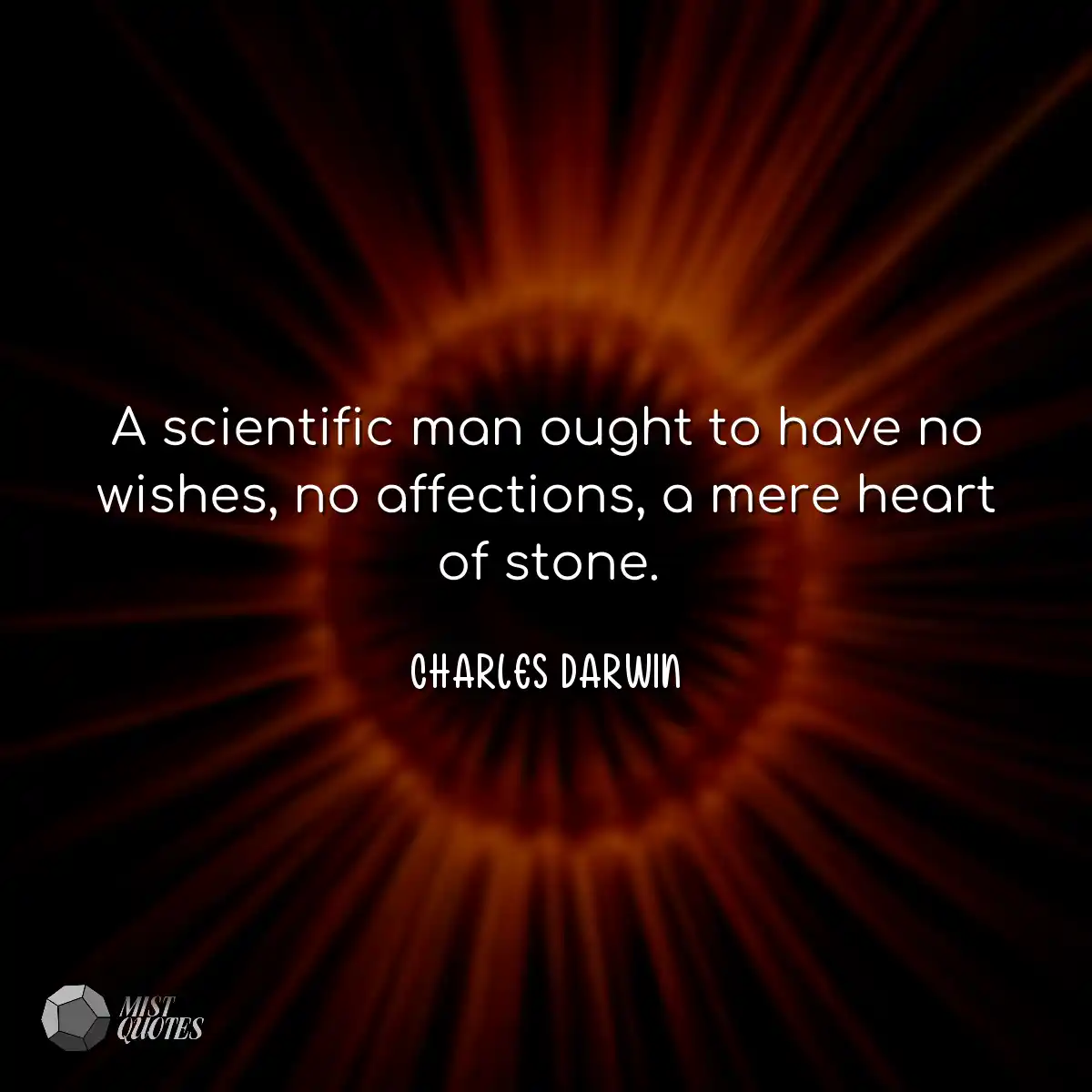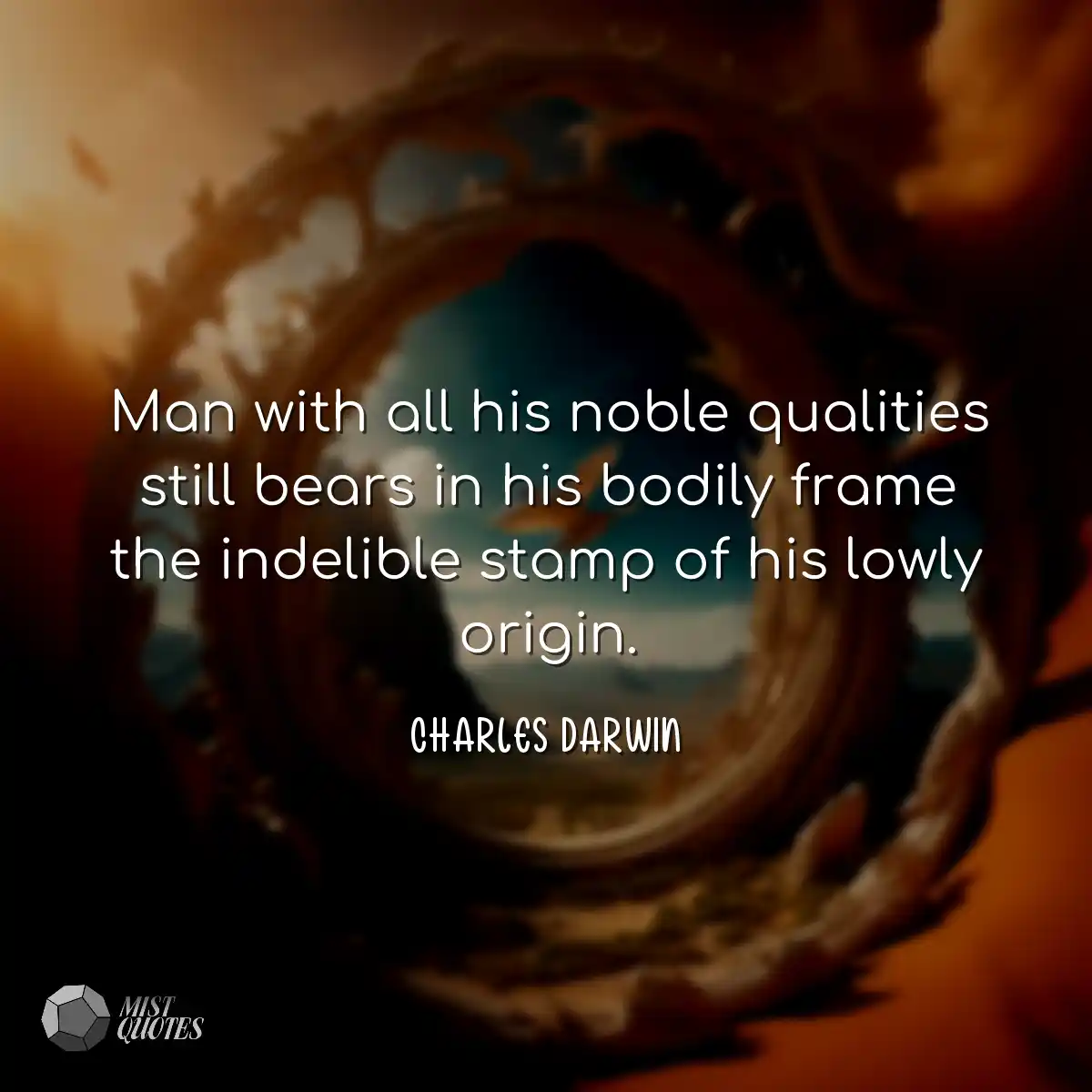
Charles Darwin
Naturalist, geologist and biologist

It is not the strongest of the species that survives, nor the most intelligent, but the one most responsive to change.

Ignorance more frequently begets confidence than does knowledge.

A man who dares to waste one hour of time has not discovered the value of life.

I love fools' experiments. I am always making them.

If the misery of the poor be caused not by the laws of nature, but by our institutions, great is our sin.

An American monkey, after getting drunk on brandy, would never touch it again, and thus is much wiser than most men.

It is not the strongest or the most intelligent who will survive but those who can best manage change.

A scientific man ought to have no wishes, no affections, a mere heart of stone.

In the long history of humankind, those who learned to collaborate and improvise most effectively have prevailed.

Man with all his noble qualities still bears in his bodily frame the indelible stamp of his lowly origin.
Charles Robert Darwin, born on February 12, 1809, in Shrewsbury, England, was a renowned naturalist and biologist whose revolutionary ideas transformed our understanding of life on Earth. Darwin's contributions to the field of science, particularly his theory of evolution, have had a profound and lasting impact on numerous disciplines, from biology and anthropology to philosophy and psychology. Let us delve into the remarkable achievements of this intellectual luminary.
In 1831, at the age of 22, Darwin embarked on a five-year journey aboard the HMS Beagle as a naturalist. This expedition took him to various parts of the world, including the Galápagos Islands. It was during this voyage that Darwin meticulously observed and collected a vast array of plant and animal specimens, documenting his findings in journals and sketchbooks. These firsthand observations would later play a pivotal role in shaping his groundbreaking theories.
Darwin's most significant and enduring achievement is his theory of evolution by natural selection. In his seminal work, "On the Origin of Species," published in 1859, he proposed that all species of organisms have descended over time from common ancestors through a process he termed "descent with modification." According to Darwin, individuals within a population exhibit natural variation, and those with advantageous traits are more likely to survive and reproduce, thereby passing on their favorable characteristics to subsequent generations. This mechanism of natural selection drives the gradual adaptation and diversification of species.
To support his theory, Darwin amassed a wealth of evidence from diverse fields of study. Fossil records revealed a succession of ancient organisms, showcasing the progression of life forms over geological time. He also highlighted the existence of vestigial organs, such as the appendix in humans, which have lost their original function through evolution. Comparative anatomy and embryology further provided compelling evidence for common ancestry among species.
Darwin's theory of evolution stirred considerable controversy and challenged religious and societal beliefs of his time. Yet, his ideas gradually gained acceptance as mounting evidence from various scientific disciplines corroborated his claims. Darwin's groundbreaking work laid the foundation for modern evolutionary biology, stimulating extensive research and becoming a cornerstone of biological sciences.
Beyond biology, Darwin's theories have influenced fields as diverse as anthropology, psychology, and ethics. The concept of natural selection has been applied to human behavior, leading to the development of evolutionary psychology. His ideas on common ancestry have deepened our understanding of the interconnectedness of all life forms and the importance of preserving biodiversity.
Charles Darwin's approach to science, characterized by meticulous observation, extensive data collection, and rigorous analysis, has served as a model for generations of scientists. His emphasis on empirical evidence and critical thinking revolutionized scientific inquiry, inspiring researchers to explore and unravel the mysteries of the natural world.
Charles Darwin's revolutionary contributions to science, particularly his theory of evolution by natural selection, have profoundly shaped our understanding of life's origins and development. His meticulous observations, backed by compelling evidence, have withstood the test of time, solidifying his status as one of the greatest scientific minds in history. Darwin's legacy extends far beyond the realm of biology, leaving an indelible mark on human knowledge and our perception of the world. His intellectual curiosity, scientific rigor, and unwavering pursuit of truth continue to inspire and guide scientists, reminding us of the transformative power of curiosity and reason.
Recent Quotes
"To help a friend in need is easy, but to give him your time is not always opportune."
Charlie Chaplin
"Life can be wonderful if you're not afraid of it. All it takes is courage, imagination… and a little dough."
Charlie Chaplin
